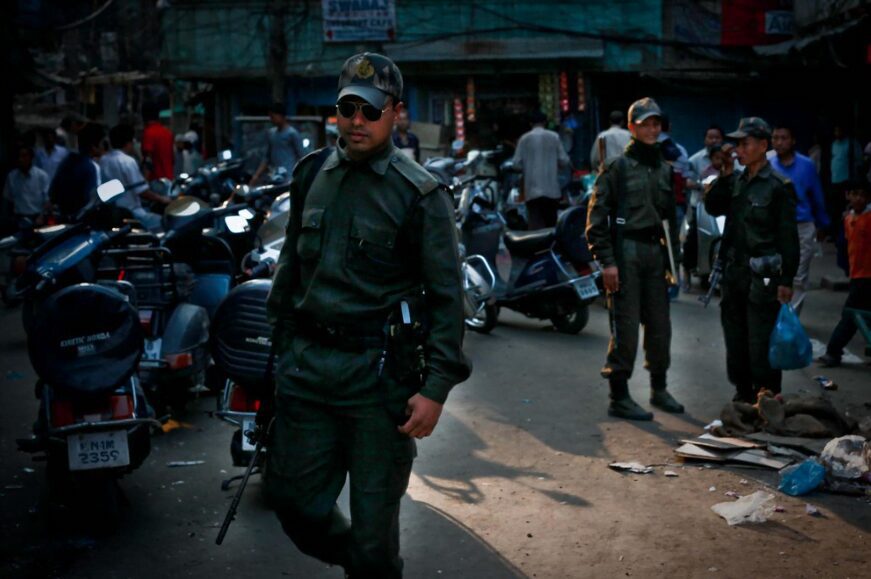Persistent Turmoil in Manipur
More than a year has elapsed since an ethnic conflagration erupted in Manipur, resulting in 221 fatalities and the displacement of nearly 50,000 individuals. The situation remains dire, with the conflict now extending to previously tranquil districts such as Jiribam. The Imphal valley and other areas are witnessing a surge in extortion and abductions, exacerbated by the proliferation of armed militias. These militias, armed with weapons looted from police armories, have significantly contributed to the escalating violence.
Ineffectual Governance
For the past year, the Union government has attempted to maintain a tenuous peace by tacitly imposing the provisions of Article 355 of the Constitution, without officially declaring it. This subterfuge aims to provide a semblance of authority to the Chief Minister from the Bharatiya Janata Party (BJP). Prime Minister Narendra Modi has been conspicuously absent from efforts to broker a humanitarian pause or a peaceful resolution to the conflict. Meanwhile, Home Minister Amit Shah’s regular security briefings have yielded little tangible progress. The recent exclusion of the Chief Minister from a key meeting with security and administrative officials underscores the disarray and lack of cohesive strategy.
A Call for Change
The electorate in Manipur has delivered a resounding verdict on the prevailing situation through the general election, where the Opposition Congress party secured decisive victories in both the Inner and Outer Manipur constituencies. This outcome, achieved despite blatant intimidatory tactics by militias aimed at deterring voters, particularly in the valley, signals a profound dissatisfaction with the status quo.
Addressing the Ethnic Divide
The Union and State governments must acknowledge the electorate’s unequivocal demand for change. A mere reshuffling of leadership will not suffice. A comprehensive strategy to address the deep-seated ethnic divide and restore peace is imperative. This entails a concerted effort to curb and disarm the antisocial militias operating in both the hill areas and the valley. Simultaneously, civil society actors dedicated to peace and amity across ethnic lines must be empowered to facilitate dialogue and work towards normalcy.
Role of Regional Representatives
Representatives from neighboring states and newly elected parliamentarians can play a pivotal role in fostering reconciliation between hostile ethnic factions. However, these efforts will only bear fruit if there is a decisive and unequivocal shift in the current state of affairs in Manipur.
The Imperative for Leadership Change
The necessity for a change in leadership is now evident. The persistence of the current political and administrative approach is not only ineffective but is also exacerbating the ethnic tensions. A new leadership, committed to genuine reconciliation and the disarmament of militias, is essential. The path to peace in Manipur lies in addressing the root causes of the conflict and fostering an environment conducive to dialogue and mutual respect.
Empowering Civil Society
Civil society organizations that transcend ethnic divisions are crucial in this peace-building process. These groups must be supported and empowered to lead initiatives aimed at restoring normalcy and promoting amity. Their involvement is vital in bridging the divide and laying the groundwork for sustainable peace.
The Way Forward
The road to resolving the Manipur conflict is fraught with challenges, but it is not insurmountable. The Union and State governments must rise to the occasion, demonstrating a commitment to decisive action and transformative change. By addressing the ethnic tensions, disarming militias, and empowering civil society, a path to lasting peace can be forged.
SummaryKey Learning PointsOver a year since the conflict began, Manipur remains in turmoil.The conflict has spread to previously peaceful districts.Armed militias are a significant source of violence.Union government’s tacit use of Article 355 has been ineffective.The Prime Minister has been largely absent from conflict resolution efforts.The electorate’s dissatisfaction is evident from the election results.A change in leadership is necessary but not sufficient.Disarming militias and empowering civil society are crucial steps.Regional representatives can aid in reconciliation efforts. VocabularyMeaningConflagrationAn extensive fire or conflict causing destructionTenuousVery weak or slightSubterfugeDeceit used to achieve one’s goalAmityFriendly relationsIntimidatoryIntended to frighten or intimidateProliferationRapid increase in numbersTacitUnderstood or implied without being statedReconciliationRestoration of friendly relationsPivotalOf crucial importanceIneffectualNot producing any significant effect

Sunil Garnayak is an expert in Indian news with extensive knowledge of the nation’s political, social, and economic landscape and international relations. With years of experience in journalism, Sunil delivers in-depth analysis and accurate reporting that keeps readers informed about the latest developments in India. His commitment to factual accuracy and nuanced storytelling ensures that his articles provide valuable insights into the country’s most pressing issues.



